Current Reading Stack
I am currently ‘reading’ 9 books. I put that in quotes, because I really have almost given up on the two bottom books in the stack, both of which I started last summer. February will be my last go with them and if I don’t make any progress, I’ll abandon them; which I don’t like to do, but you know, life is short. I’m exactly 60% of the way done with the Paul Johnson tome. I seem to average about a 100 pages a month on it so I should be done by late May. The Great Hunt is getting a bit more interesting, but I will not continue with The Wheel of Time series. It is just average and comes nowhere near LOTRs. The top five books in the stack, the ones I started most recently, are all enjoyable. I imagine the Kelton book will be finished next.
Today at Powell’s I picked up a novel I’ve heard a lot of good things about called Stoner by British writer John Williams. It came out in the 1960s, but apparently went a bit viral in the oughts. It currently has more than a quarter million ratings on Goodreads. Glad to add it to my TBR pile.
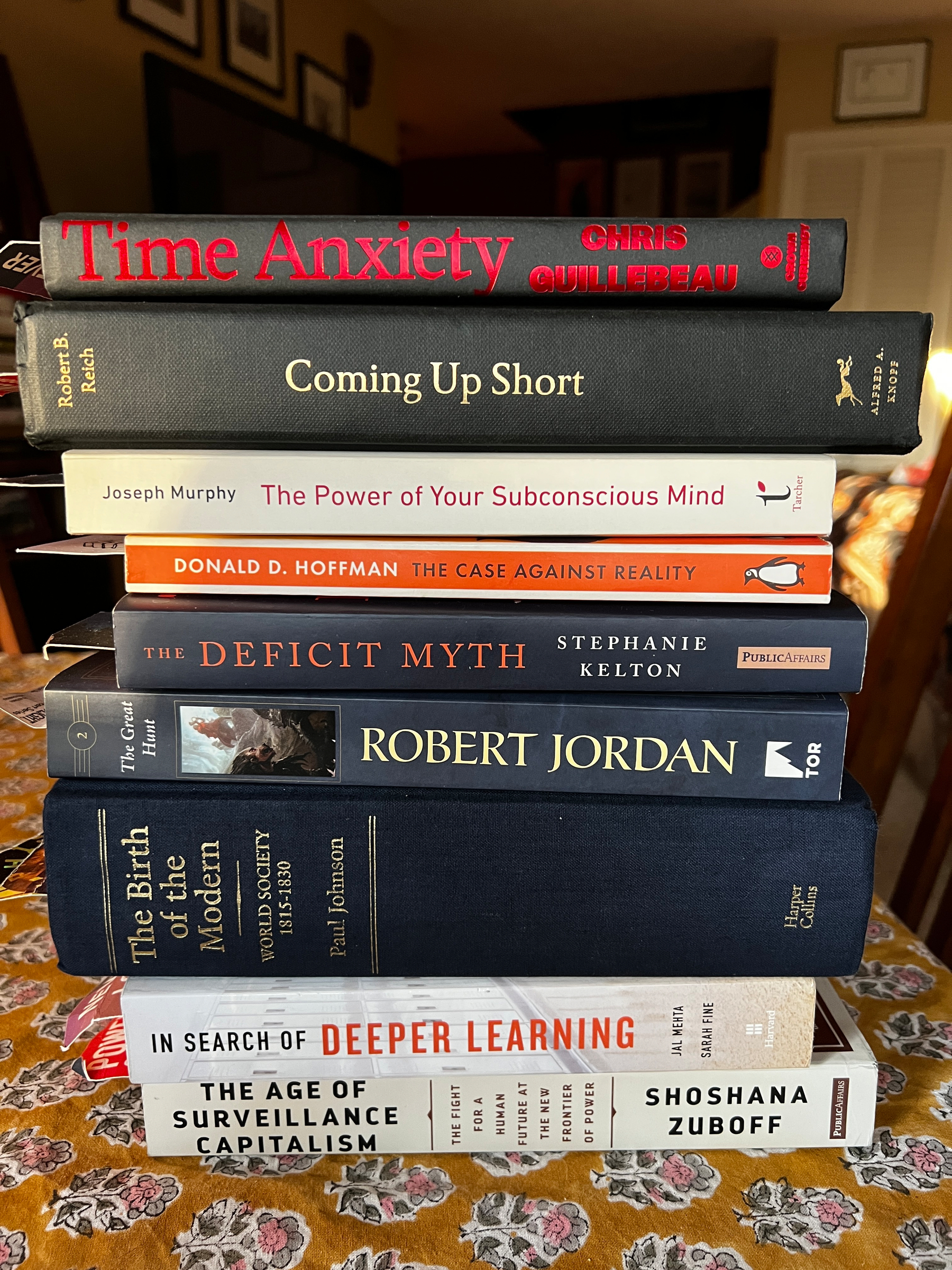
A Quick Hit on the Availability of THC Drinks at the United Center in Chicago
Well, the times they are a-changing. Just a quick note here about the news out of Chicago this week that the United Center, home of the Chicago Bulls (NBA) and Chicago Blackhawks (NHL), is going to start selling beverages with THC. Apparently, they won’t be sold at the those games, though. Hearing this, I’m not sure what I think. Is it better than alcohol? Yes, probably; though I’ve never had a THC beverage so I have no idea how drinking it plays out in someone’s head. I assume they’d be a bit buzzed heading to the parking lot, especially if they have more than one. I saw that one of the arguments in favor of the move is that Americans are much more likely to properly dose themselves with a beverage, than say with a gummy. That makes sense to me. Americans have been self dosing alcohol by imbibing for our entire history. We’re used to medicating ourselves that way. What I wonder is how long it takes for the beverage to have an effect. The longer it takes, the more likely for mayhem on the roads. Then again, concerts take place every night all over America with stoned drivers heading home and that doesn’t seem to be much of an issue. Indeed, since they aren’t selling the beverages at the games (yet), I imagine concert will be the type of event that they will be available at.
Another thought I have about this is that it is a positive step away from alcohol and towards a more benign, though still powerful drug. Combine this with the related fact that Americans are consuming less and less alcohol and I can see why the United Center is making the decision (they are capitalists reacting to what the market wants) and why consumers might be looking for an alternative to $14 Bud Lights (ugh).
I am also curious to see if this catches on in freedom loving blue states where cannabis is legal (as it should be) and where grown ups get to decide for themselves how to relax at a sporting event or concert. Also, how long before they are available at the Bulls and Blackhawks games? Will those leauges, who are so averse to ticking off a part of their fan base, eventually come around. My guess is they big sports leagues will continue to resist, while the idea catches at arenas elsewhere.

Our Shrinking Brains
I got a very interesting book for Christmas called The Case Agaist Reality. It is a short, dense work of philosophy that I am slowly working my way through. Something I just came across in the book has to do with the shrinking of the human brain over the past 20,000 years. Indeed, some apparently argue this shrinking began as much as 100,00 years ago. This was news to me.
Apparently, according to some thinkers, as societies arose and became more complex, our ancestors increasingly didn’t need to ‘know everything’ to survive. They could become specialists. This is an obvious idea to me from a cultural and economic standpoint, but I didn’t realize it has had an impact on our brain size and the ratio of brain size to body mass.
The idea is that Individuals who may not have survived alone or in small groups, could survive in larger, more complex communities. Indeed, culture acts as a sort of buffer, or safety net. Tools, stored food, medical expertise, shared memories (and eventually writing); these all help carry the cognitive burden for people allowing for leaner biological cognition without losing ‘intelligence.’ At the same time, selection pressures decreased, as one could get away with not being an outstanding generalist. At the end of the day, it appears complex societies didn’t make humans dumber; they changed which kinds of minds could survive.
These ideas are still controversial and there doesn’t seem to be consensus. The fact that our brains have been shrinking however doesn’t seem to be in doubt.

Thinking about Robert Reich and William T. Sherman
One of the books I am currently enjoying is economist Robert Reich’s memoir Coming Up Short. The book is not a straight memoir, as Reich works in polemics about American politics and our economy while telling his life story in roughly chronological order. I tend to agree with his views, so I am not put off by the political digressions. Reich was born to a working class Jewish family and eventually earned a law degree from Yale, where he knew and went to school with Hillary Rodham, Bill Clinton, and Clarence Thomas. He worked for the Carter administration in the 1970s and eventually served as President Clinton’s secretary of labor. He eventually became a professor (at Harvard and Berkeley) and is now a pretty outspoken policy wonk advocating for a variety of progressive issues.
I have also been thinking about Union General William Tecumseh Sherman because I recently taught a lesson about his ‘March to the Sea’ during the Civil War. The essential question of the lesson was whether or not it is justifiable to make war on civilians and infrastructure, which Sherman did to great effect. As I write this, I realize that I am overdue in reading one of the biographies about Sherman, because it is clear to me that he is a fascinating character. A fact that I love about him is the willingness he had to do what it took to defeat the traitors during the American Civil War. That said, he was generally conservative, a racist, and was motivated more by keeping the Union together than abolition.
What might these two very different people have in common? The connection that comes to mind has to do with systems. Sherman had his soldiers attack the railroads (leading to ‘Sherman’s Neckties’) and farms (leading to ‘Sherman’s Sentinels’) as they marched through the South. He also didn’t feed his soldiers and instead had them ‘forage,’ which led them to steal from the people of Georgia as they made their way to the coast from Atlanta (which was left in flames). By doing this, Sherman attacked the system that sustained the Confederacy.
I see Reich as someone who thinks a lot about the reality of the economic system we live in. Rather than wallowing in theory, in his book Reich often explains the mechanisms and decisions that many people in power make that impact our society, for better and for worse.
I’m left wondering, what can one do to improve the corrupt and immoral systems we are a part of? Simple, every day choices made by enough people hopefully preclude the need for the type of choices Sherman had to make.

Taking the Plunge with Some Kindle Books
I have never been a fan of ebooks. I read a ton, and I have given them a go, but there is something about holding a physical book that is deeply satisfying for me. Another issue I’ve always worried about with regards to ebooks is the blue light. I read in the evenings and I don’t want to have unnecessary exposure to blue lights that might negatively impact my sleep. Another factor that impacted my view was that I couldn’t physically assess, while reading, how far I’d come in a book and how far I had left. An ebook feels the same whether you are on page 1 or page 700.
That said, I don’t have a ton of space for more books. I am also the owner now of some decent blue light blocking glasses that I can wear in the evenings. Finally, I have become more and more comfortable with my iPad. While shopping for something totally unrelated on Amazon todayI decided to browse the book section and I came across a collection of ebooks that for today only cost either $1.99 or $2.99. One of the books was a 365 day ‘daily reader’ style book, which I was in the market for since we just started a new year and I hadn’t found a new one yet I wanted to read.
All this is to say that I spent about $11 on 7 ebooks that I can now enjoy on my iPad. I’ve already started the daily reader. Not sure when I’ll dive into one of the others, but for $2, I couldn’t resist. Indeed, when I think about how much time I’ll enjoy reading these books in light of their cost, especially when I consider what a 2 hour movie costs these days, I feel like I got a good deal. Later in the year I suspect I’ll repost something about whether the money was well spent or not.

Three Cheers for Brandon Stanton's Work
I am a serious fan of Brandon Stanton’s photo books. His first book, Humans of New York, blew up when it was first published. I loved the concept and thought the photos and quotes from the people he photographed were fascinating. I liked his book Humans even more. I am now almost through his latest coffee table book, Dear New York,.
The concept is simple. Each page has a photo and is accompanied by a quote from the person in the picture. I love the books because the people are so unique and often the things they say are entertaining, weird, insightful, revelatory, inspirational, or all of the above wrapped into one monologue. They also provide a similar benefit to traveling, which is to expose oneself to people that are utterly different than oneself.
I can’t recommend these books enough.
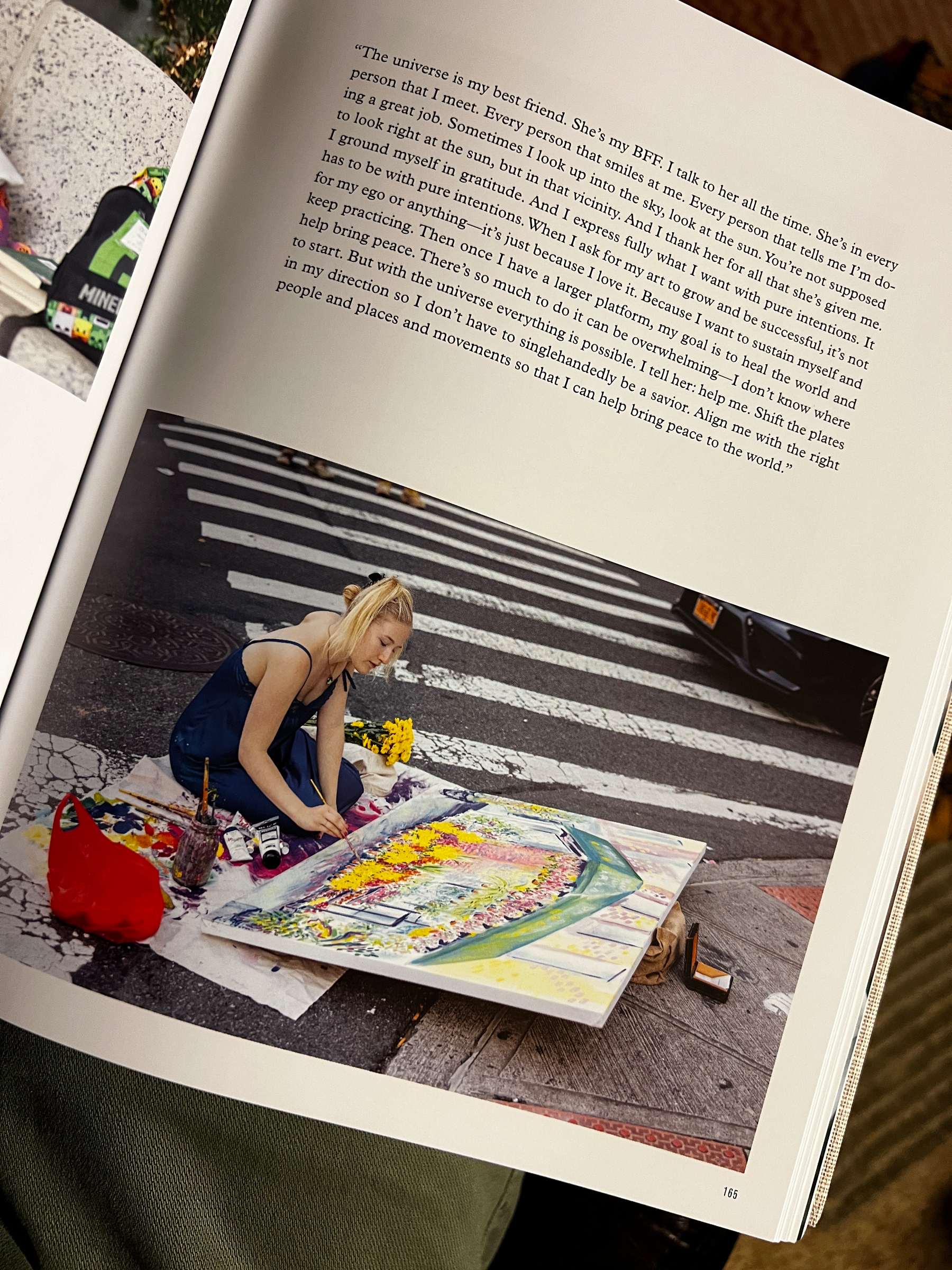
A Great Place to Find Your Next Read
I recently came across this great book resource. It advertises itself as a compilation of the top 1,000 books mentioned on Hacker News. While it clearly scews a bit towards ‘tech bro’, a list with a thousand items on it is going to cover a lot of ground. My current ‘to be read’ pile at home is plenty big, but I’ve really enjoyed browsing this digital library.
There are several books on the page that I am not surprised are here that I think are unduly popular and generally overhyped (such as Ayn Rand’s childish novels and Robert Kiyosaki’s Rich Dad, Poor Dad).
Three books I saw on the site that I definitely want to read for the first time include:
-
The Three-Body Problem by Lui Cixin
-
Debt by David Graeber
-
Finite and Infinite Games by James P. Carse
Happy browsing! ✌🏼
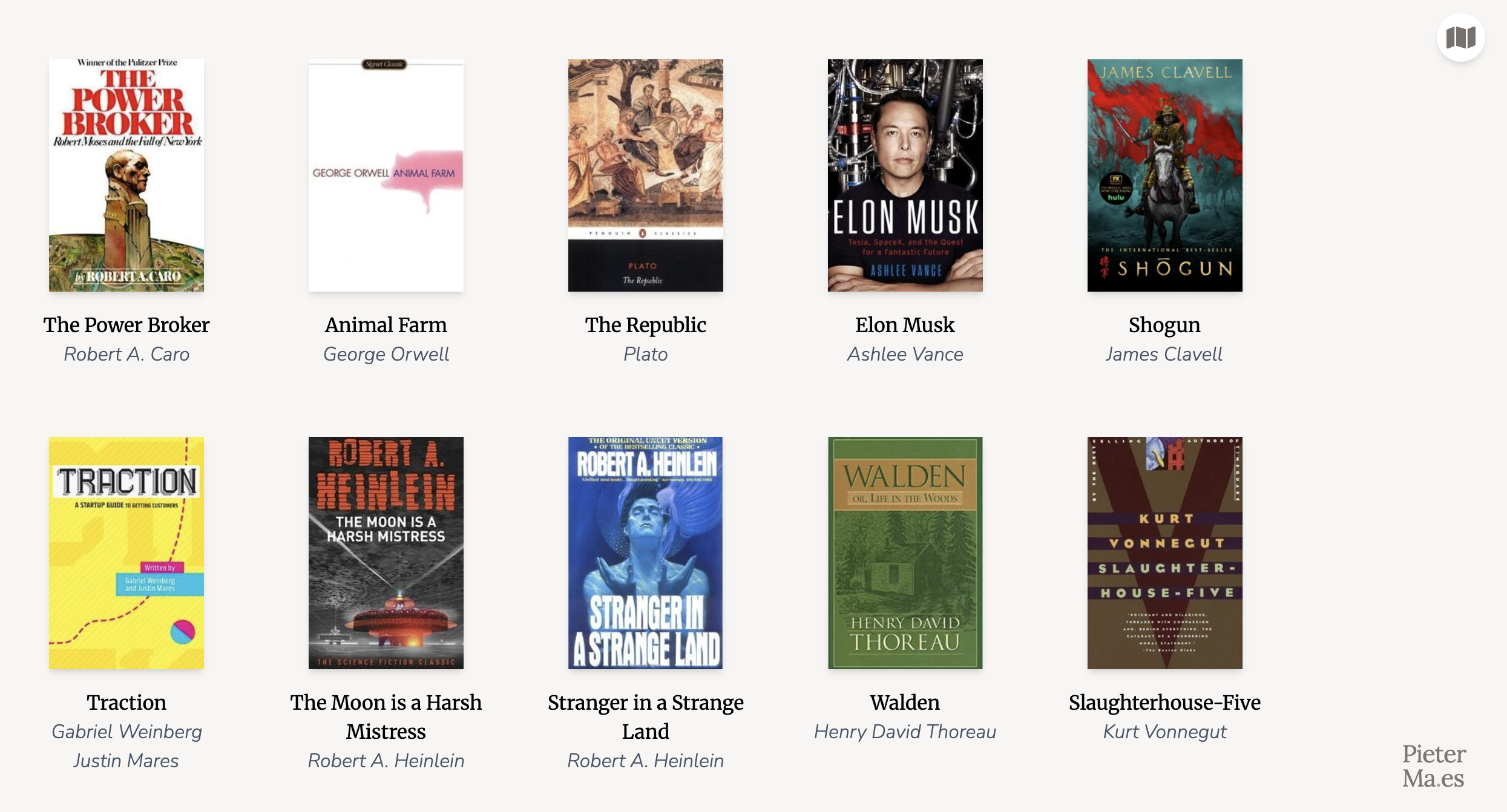
A Typical Day in AP Governmet
The teaching agenda below is from a week and a half ago in my AP Government class. We were early into Unit 3 (Civil Rights and Civil Liberties), which you can detect by the Learning Block (LB) number 3.2. This indicates we are in the second LB of the unit. This particular LB was about freedom of religion, specifically the ‘establishment clause’ and ‘free excercise clause’ of the First Amendment.
AP Gov has a collection of required Supreme Court cases that students need to be familiar with so this learning block was where I was able to introduce Engle v. Vitale and Wisconsin v. Yoder. This agenda ended up being too ambitious and we only got through the first case that day.
To teach the case, I have a published case study that breaks the case down into four parts: Background, Constitutional Issue, Majority Opinion, and Dissenting Opinion. We read it together than I always pair the reading with a short informational video (AP Gov required cases all have several video options available for review on YouTube). After that students work in pairs to answer a set of questions about the case.
The following class, students finished up the LB by looking at the Yoder case then doing some writing in their INBs (Interactive Notebooks) that forces them to synthesize their understanding of both cases.
It is worth noting that I usually start Fridays in all my classes with the one-two punch of a quiz and a self assessment. However, this week was a short week (due to the end of the winter break) so I scratched those two initial activities.
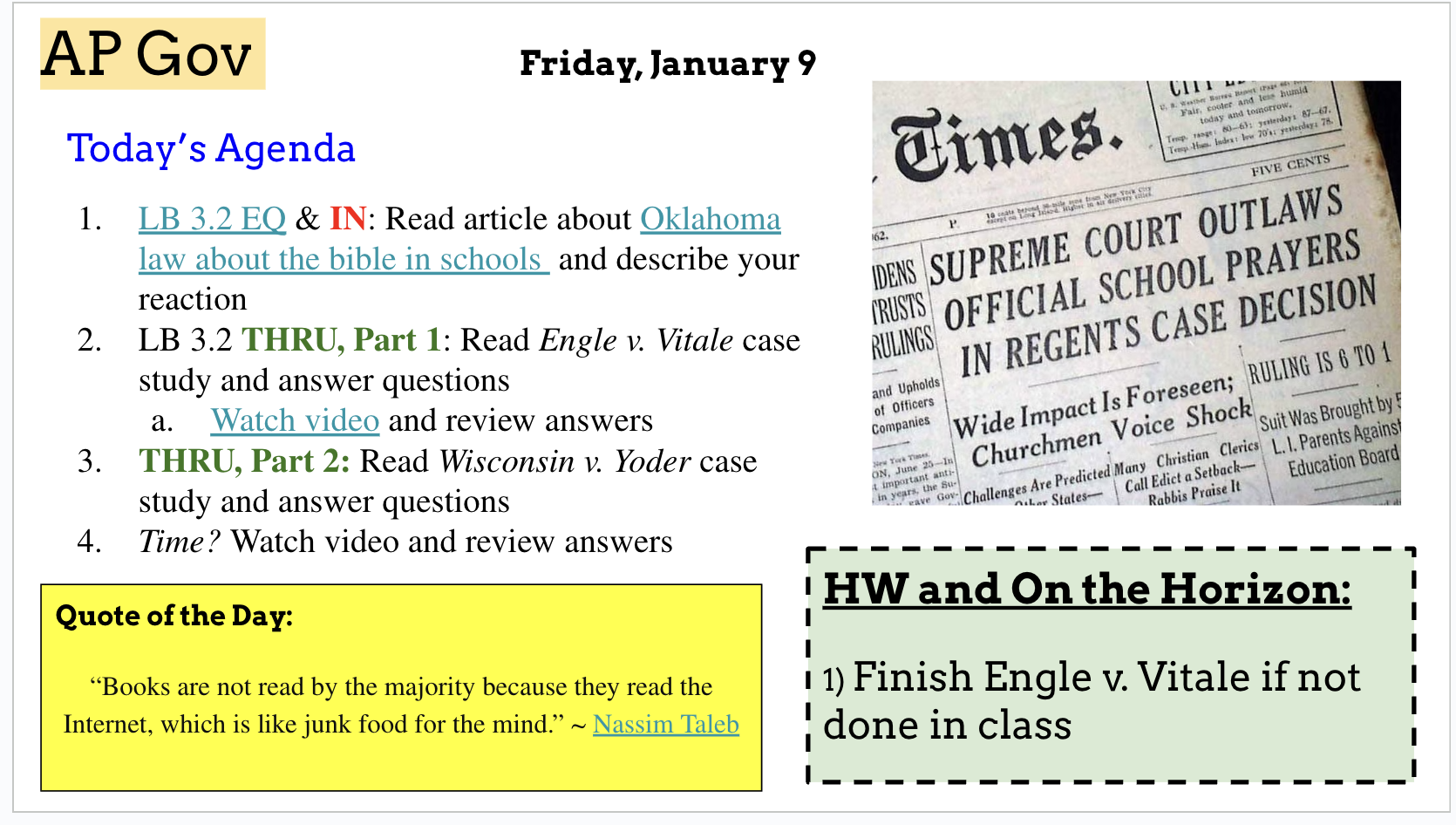
A Typical Day in AP US History
Today and tomorrow, I thought I’d share a couple of typical class agendas. The first is from last Thursday in my AP US History class. This was the final class period before the students took a unit exam. We started by finishing a Digital Inquiry Group lesson about notorious abolitionist John Brown. The plan was to have them answer the Essential Question for the Learning Block (LB), which was ‘Was John Brown a hero or a misguided fanatic?" However, in order to make sure we got through the last Learning Block of the unit, I had them chat about the EQ with a deskmate and then we reviewed together quickly and moved on. The next LB was about the election of 1860. For their IN (my version of the intro to the assignment), I passed out a short, empty chart about the elections of 1800 and 1824. I asked them to work with a partner to identify the winners of each of those elections and anything unusual about them. They chatted, then the whole class reviewed. After that I lectured briefly (about 12 minutes) about the 1860 election (using Google slides that I projected onto the whiteboard in the front of the room). Student were expected to take notes during the short lecture. After that, we had just enough time for students to process their learning by completing an SAQ (Short Answer Question) that I created as their OUT (which is my version of the wrap-up of a LB).
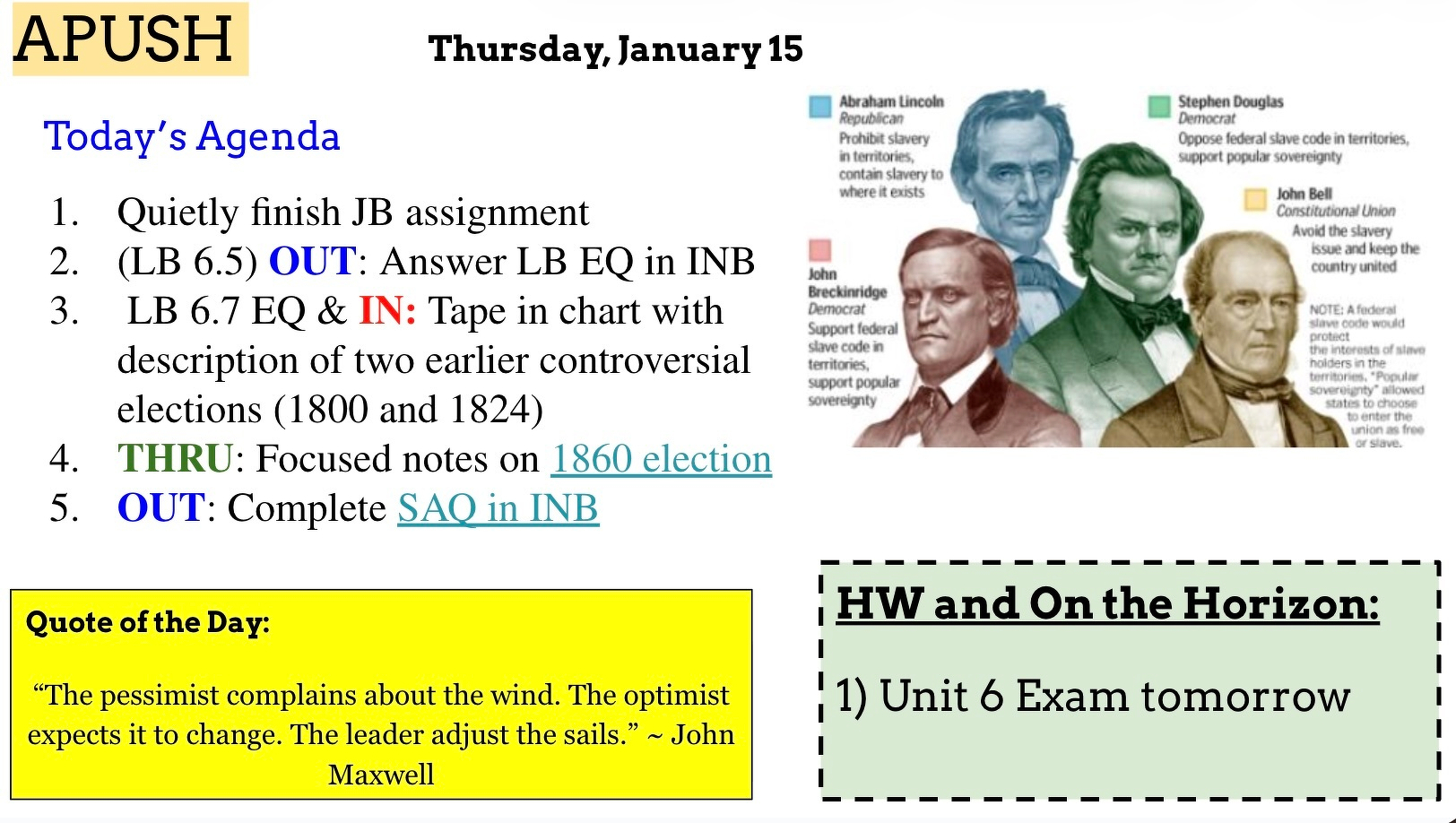
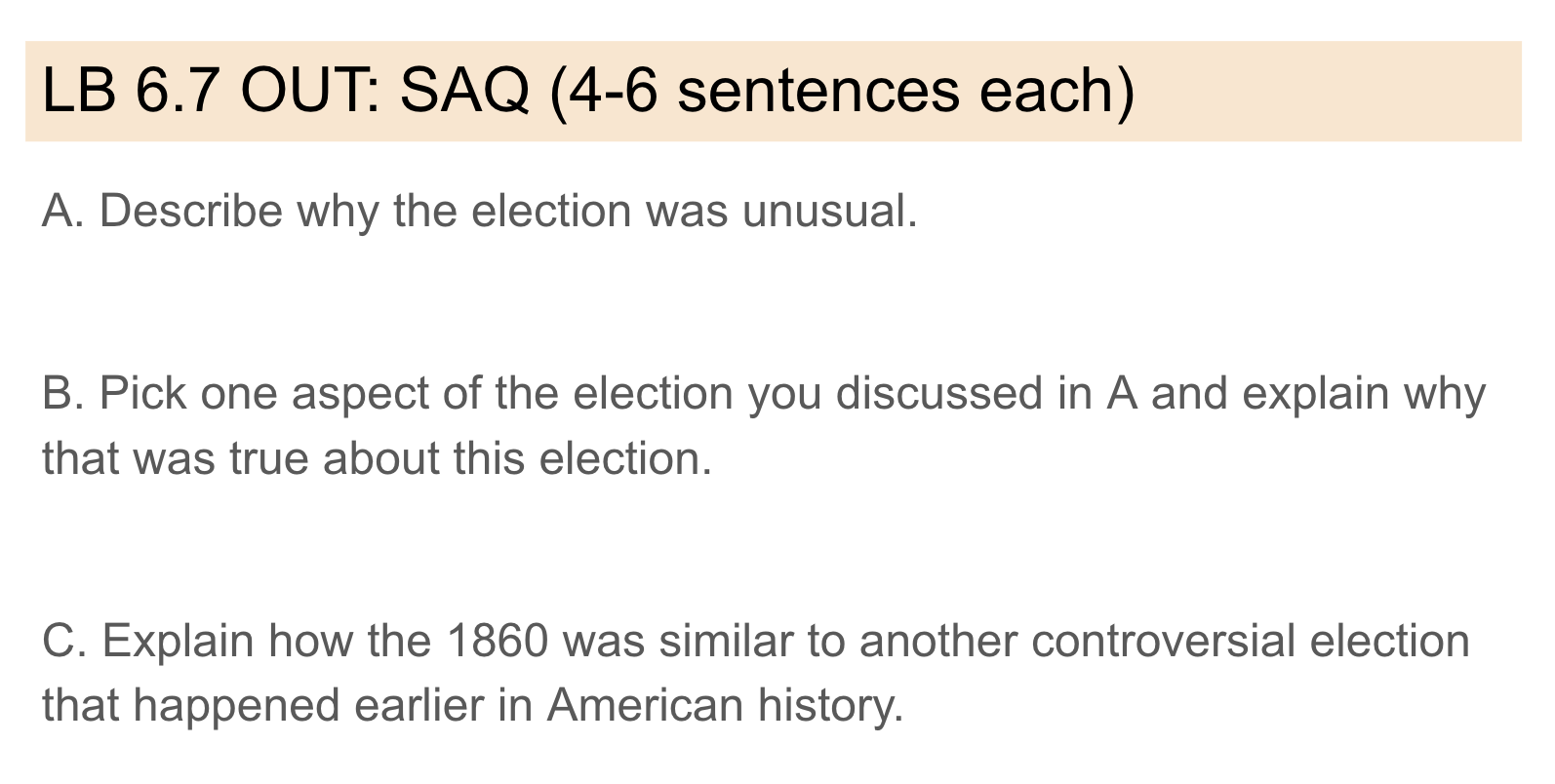
The Kids Are Alright
My school has a hybrid schedule. Two days a week the periods are 90 minutes long. I usually take that opportunity to start those longer classes with what I call a ‘whip around’ question. These questions are meant to let everyone share their thoughts and for me to get to know my students better. This week I asked my students ‘What is something that you are really into right now?’ I got a wide assortment of answers (from new TV shows, to baking, to taking walks at night), including references to music. To my delight, in my 7th period class four students mentioned listening to the Grateful Dead. This was an amazing surprise, though it makes sense in the wake of Bobby Weir’s recent passing. It goes without saying that I was stoked to be able to talk about my love of the Dead for a few minutes. Students even asked if I’d shared some Dead tunes in Google Classroom. (Mission accepted!)
Another thing that recently happened at my school happened today. One of my former students, who is now a senior, organized a walkout and short march from our school to the district office. The whole thing lasted about an hour, but about 400 students participated. Needless to say, it is encouraging to see young people engage politically within the growing authoritarian environment we are all experiencing in the United States.
Rush is My Jam Show #12
The show would never happen in real life, but I would love it if it did. Lots of ‘tier two’ Rush songs that are top tier for me, including Vital Signs, Between Sun and Moon, The Big Money, and Losing It. How bout that post Neil trifecta at the end of the second set? So. Many. Good. Songs.

RIP Bobby
Well, it wasn’t the obit I was hoping for. Bob Weir, original member of the Grateful Dead, has passed away at the age of 78. It was something I think all Deadheads expected to happen at some point, but I am a bit surprised. He just seemed to keep on keeping on. Apparently he died of lung complications that arose from a fight with cancer.
The first time I saw the Dead was in February of 1991. I was blown away and have been a Deadhead ever since. The last time I saw Bobby perform was last May at the Sphere with Dead and Company. All together I think I saw him perform close to 75 times. Jerry got all the attention, but Bobby was also something special. It is crazy to think that he actually spent a bit more time playing Grateful Dead music after Jerry passed than he did with Jerry.
My favorite Bobby songs include the following:
- Feel Like a Stranger
This is my all time favorite Bobby tune. Didn’t see it live enough. When my mood is off I can put this on and I immediately feel better. My favorite versions are from the Fall of 1989 and Spring of 1990.
The studio version of this song was the first Dead song I fell in love with. This live version from Cornell is worth a listen, too.
- Cassidy
The lyrics to this song are sublime. John Perry Barlow wrote the lyrics, but Bobby wrote the music and sang the tune. My favorite version is the acoustic one from Reckoning.
Epic psychedelia. This is one of Bobby’s older tunes and I usually saw him perform coming our of Drums and Space. Always a welcome base line to hear coming out of the freeform madness.
- Jack Straw
Quintessential Grateful Dead. Always a great show opener. Bobby owned this tune. The version from Europe ‘72 is my fav.
- Truckin’
Bobby shares the lyrics with Jerry on this one, but his lines are canonical Dead. Hard to beat the studio version of this tune.
This not usually a top 10 song for most Deadheads. It was often tucked away in the middle of a first set. It always resonated with me though.
- Lay My Lilly Down
This tune was on Bobby’s solo record from 2016 called Blue Mountain. Wise Bobby music.
Fare-thee-well now
Let your life proceed by its own design
Nothing to tell now
Let the words be yours, I’m done with mine

A Connection with the Past
I am teaching my students about the coming of the American Civil War. Today we read about and discussed the Compromise of 1850 and the attendant Fugitive Slave Law. Considering we are two days out from the murder of Renee Nicole Good and a day out from federal agents having shot two people here in Portland, students made some connections. Of course, some of my students are currently quite frightened by what is happening in our country. Others are seething. I noticed that it was quite easy for them to understand the anger and outrage northern abolitionists must have felt in the 1850s, when their federal government was behaving in such a patently immoral way. Unlike any other year that I have taught this, students are connecting in a unique and powerful way.
You might say events, along with an understanding of the past, are waking them up.
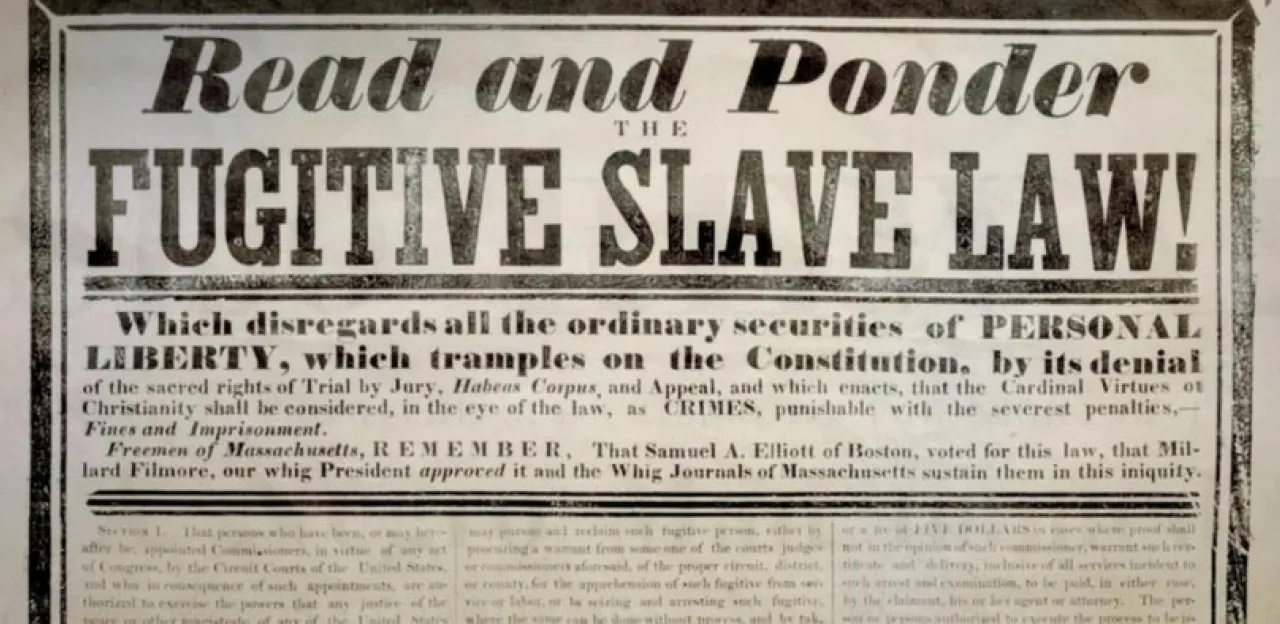
Comcast CEO Brian Roberts is Overpaid and the Leader of a Shitty Company
Comcast was so unpopular they had rebrand as Xfinity 15 years ago. Well, Xfinity sucks just as bad Comcast. They are essentially a monopoly, and they act like it (with high prices, shitty customer service, because what are you going do about it??). Yesterday our internet was down for a good 9 hours. They said they were going to improve service. Once it was turned back on, it was slower than before. Today it went out again, and we got no heads up via text. Then, when I went to the app to deal with it, it wouldn’t let me sign in. I knew my password, but it still wouldn’t let me in. Then, of course, I tried to call them to get some help. Did I get a chance to talk to someone? Nope….No humans available.
The CEO of Comcast is a guy named Brian Roberts. He made approximately $34 million in 2024. That was a step down from 2023, when his total compenstaion was $35.5 million. He’s a billionaire, so these earnings are a mere pittance. Guess how he came to the CEO of Comcast? Yep, he’s a nepo baby. His daddy was the founder. He apparently owns ‘only’ 1% of the company via ownership stock, but he owns approximately 33% of the B shares (i.e., the voting shares). The top 3 Shareholders (by equity) are The Vanguard Group (~10%), BlackRock, Inc. (~8.8%), and State Street Corporation (~5%).
Oh, and Comcast also owns a controlling stake in NBC Universal. That means that a nepo baby who didn’t earn shit owns one of the biggest media companies in America, as well as the means of providing the media to your home or computer.
This is another example of someone with too much power, making tremendous amounts of money he merely has the privilege to be earning. Roberts inherited his company, and therefore his disgusting salary. And to be clear, the service they provide, especially their customer service, is shitty.
Funny side note: I just asked Google’s Nano Banana Pro to generate an image of people with pitchforks marching up to a castle named Comcast for my tiny little blog. It wouldn’t do it. Said it was a violation of their guidelines. I read the guidelines and think their explanation is a stretch. Anyway, Google’s got the back of their fellow corporoate overlords covered. Checks out.
OK, rant over.

5 Recommendations
It has been a while, so here are 5 recommendations for your consideration.
-
This article by the YouGov folks documenting the sad dearth of reading in our society. To say it explains a lot is a large understatement. This is a deep dive loaded with easy to understand renditions of recent data.
-
Musical Artist Miles Miller. I few years ago I came across a few of the tunes from his inaugural record and became a fan. I especially love Highway Shoes. Recently, at the Phish show I was lucky to see, his new album was played in it’s entirety pre-show. It also has some great tunes, like Stormy and Get Busy.
-
Jeff Su’s tech YouTube channel. Su’s humor is self deprecating and his videos are both clear and helpful (assuming you use the software he teaches about). He has a newsletter as well that I subscribe to because I am deep into the Google ecosystem. His AI knowledge has also been helpful to me.
-
The Achilles Trap by Steve Coll. This book was a Christmas gift and covers the background to the US invastion of Iraq. Probably not for everyone, but for history nerds and news junkies, it’s a great read. He does a fantastic job humanizing some of the big players, like the sadistic weirdo Saddam Hussein. (Did you know he wrote novels?) Considering the hubris we are seeing at the moment in present administration, this is relevant reading.
-
A cool new blog with similar vibes to this one (but with better writing!). The author is a friend and I know his take on the world will be worth reading. Good luck Androsian!
New Year, New Books to Read
I recently visited three bookstores in New York City and three in New Haven, Connecticut. I had received some gift cards to book stores but I didn’t want to buy books back east and have to deal with traveling back home with them. Instead, I was happily conducting research. I took note of what interested me and then went shopping when I got back home.
The photo below is what I came home with, except for the John le Carré novel, which was a gift I received in New Haven. Pretty good mix; a little poetry, a little philosophy, some memoir, some history. I even managed to get one novel. The surprise of the litter was The Coming of Neo Feudalism. I am also excited to read Brandon Stratton’s Dear New York, since I am a huge fans of his other photography/interview books.
I hope you got something new to read, as well.
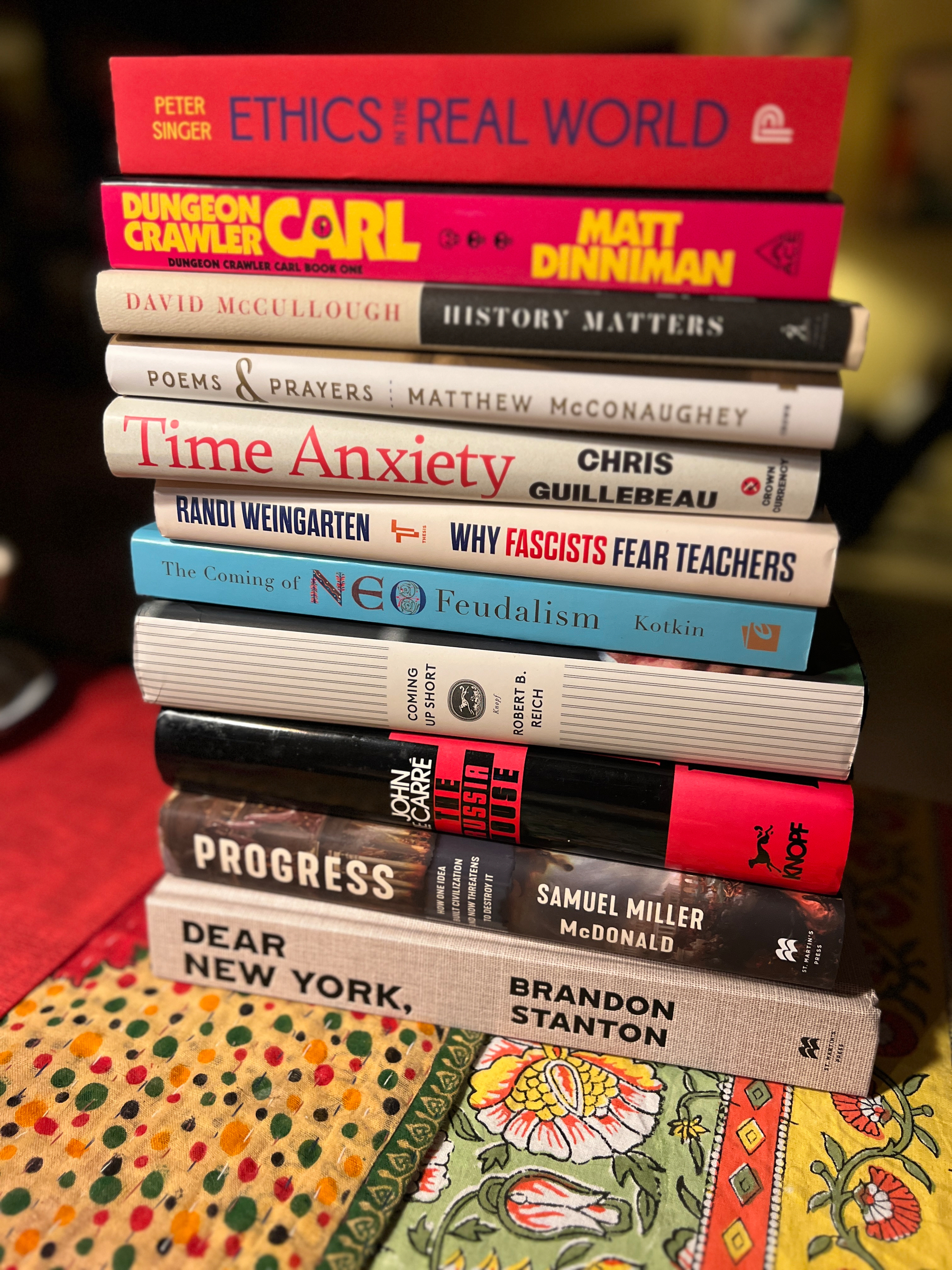
On Being Sick
Being sick is no fun. I am lucky that I don’t get sick all that often. Unfortunately, today is one of those rare times. I woke up in the middle of the night and knew my body was fighting something. My Oura ring data confirmed things in the morning (not that I needed confirmation, though it is somewhat comforting to know the ring is able to pick up on important changes in my biometrics).
My illness is complicated a bit by the fact that I need to spend a good part of tomorrow afternoon and evening flying across the country. Normally that would throw me for an additional mental loop, perhaps worsening my condition. That situation has me leaning in hard to developing a positive mindset. I am lucky I can take today off and just relax. However, I am also actively working in my mind to convince my body that I am healing and that my trip tomorrow will arise without incident. We shall see.
Being under the weather brings up a few other thoughts about mental framing. For me, I can easily get down on myself for not being as ‘productive’ as I should be. I’ve put off grading for most the past couple weeks and I had hoped to get more done today. I am reframing this as a forced pause that was needed. I am hoping that feeling better, along with the start of the new year, will give me a ‘fresh start effect’ as I dive back into teaching.
It is also a reminder that the body must be respected. I’ve been out of my own bed for almost two weeks now. I spent the night in the Charlotte airport recently, and stayed up late seeing Phish in the Big Apple. My diet, being away from home, has also been off kilter. I respect that my body is sending me a message.
Ultimately, illness interrupts the story we tell about ourselves as capable and in control. It demands less striving and more listening, at least for a while. If there’s wisdom here, it’s not in enduring sickness, but in noticing how quickly we forget the gift of feeling well again.
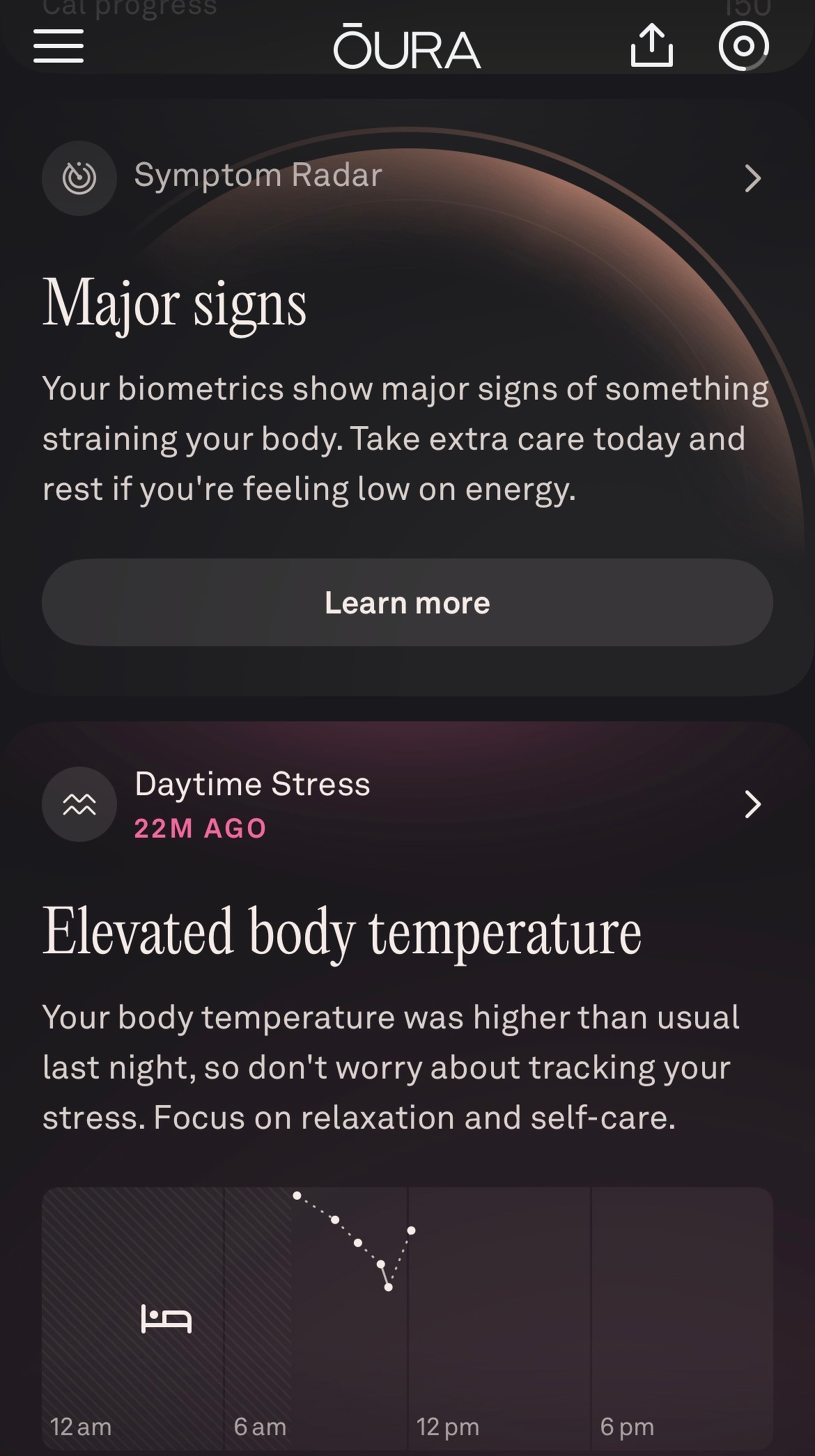
A Warning System at End of the Year
Ideopunk is right. We need to learn how to course correct on our own. I suppose, our spouses and close friends can provide warning signals. but then again, sometimes confronting someone about the need to rethink something can feel icky.
So how can we create or our own warning signals?
For me, one way is to use events like the start of a new year to reflect. Sure, the timing is arbritary, but it works. For one, the new year always comes in the middle of stretch of time off from work. The winter solstice has also recently occurred, giving me the sense of a new beginning.
My reflection consists of two parts. One, I give myself time for a major brain dump of everything that is on my mind. Secondly, I like the Stop/Start/Continue exercise and apply it to my life. This process usually drips out over several days, allowing my ‘system 2’ thinking to go to work. Do I catch all the warning signs in life that I need to catch? I’m not sure I’m batting 100%, but as a personal warning system, period reflecting helps tremendously.
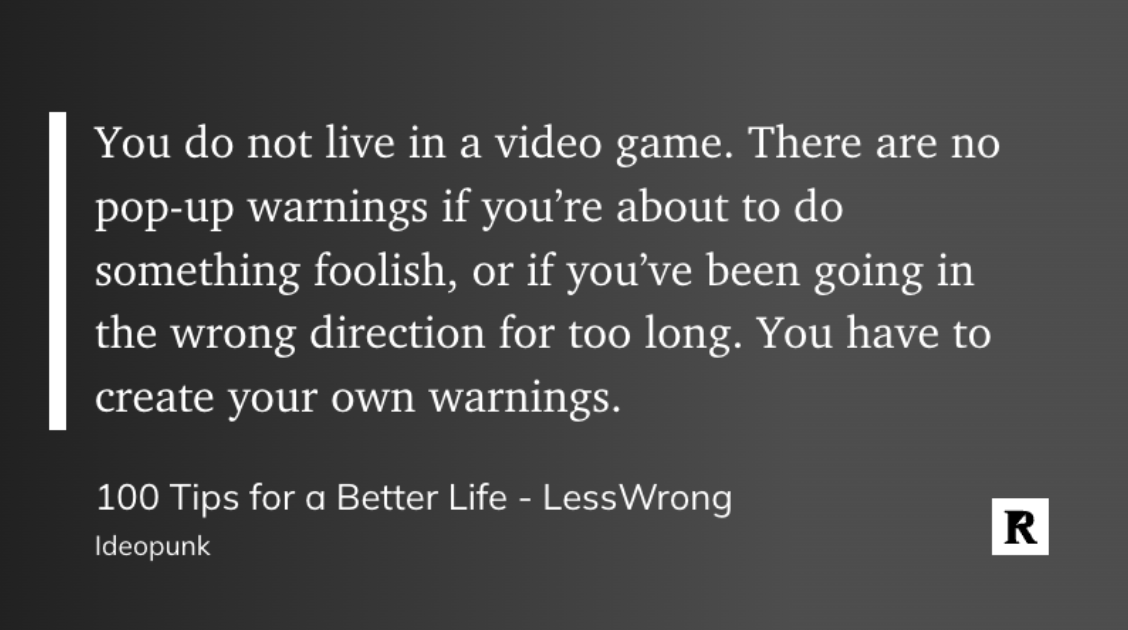
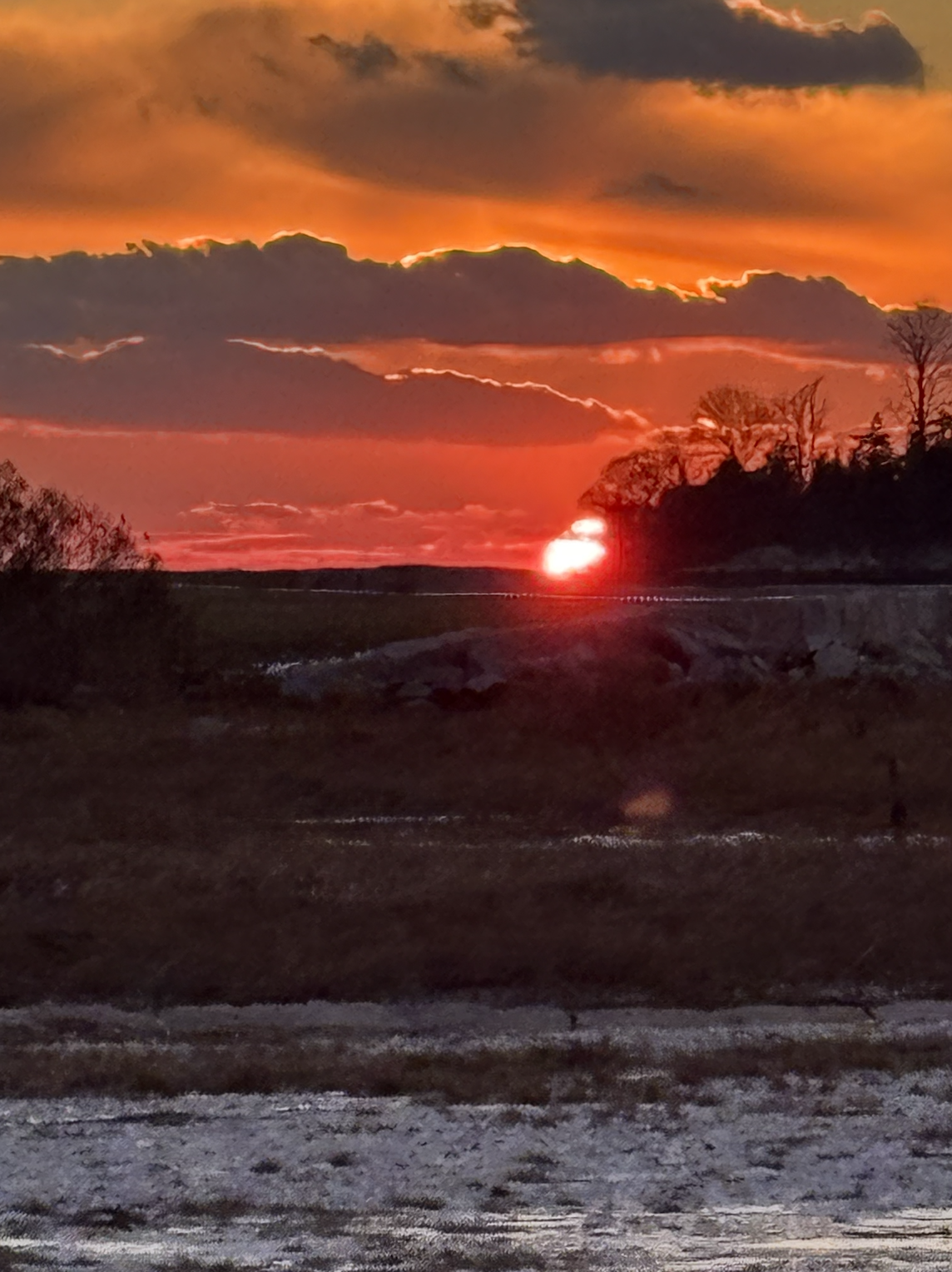
In Praise of Barnes and Noble
When I travel I love visiting the bookstores in town. Since Covid, because they are ubiquitous, I have had the pleasure of checking out many Barnes & Noble stores. In the past, when big chain bookstores ruled before Amazon, I was always more of a fan of Borders than B&N. However, the visits to various B&Ns around the country over the last several years have led me to change my views about the chain.
One of their strategies, I have learned, is to allow the managers at each location to have leeway to stock the stores based on their knowledge of the local community of book buyers. That way, each store ends of being somewhat unique with a different mix of titles. This is noticeable in Portland when visiting the various B&N locations.
Today I visited the one in North Haven, Connecticut and it was awesome. Something I noticed there, which seems to be a common practice now at their stores, is that they have a wide selection of books. They do this by filing many, many of their books sideways instead of face out. In these parts of their shelves they only have one copy of each book, but the selection of new books is impressive. Rather than the top 10 biggest sellers set up 8 deep, it was hundreds of new books per section filed sideways. I was able to spend about 80 minutes just browsing the non-fiction today.
We are visiting NYC soon and instead of Barnes and Noble I am looking forward to visiting The Strand. Will report on that visit soon.